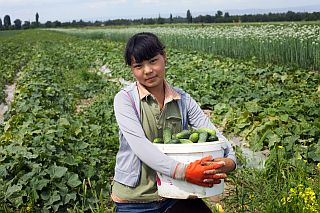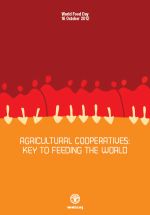Agricultural cooperatives are usually thought of in terms of pooled resources to help plant, harvest and market crops. But equally important are the cooperative arrangements that help manage natural resources. Perhaps the most common of these are water user associations.
Photo: Ikuru Kawajima” bgcolor=”#ffffff” textcolor=”#006bb3″]
 [/box2]
[/box2]
In the early years of agricultural development in the poor South, much emphasis was placed on big projects; huge publicly managed dams and irrigation projects that could catalyse crop production on a massive scale. Many of these were initially successful and are often credited with underwriting the “green revolution” in Asia.
But over time inadequate financial resources for maintenance and an increase in cropping intensity resulting inequitable distribution of canal water began to disillusion investors and farmers. Irrigation structures were neglected. One suggested solution was to develop more participatory irrigation management (often shortened to PIM) so that communities could control their own resources. Many villages were encouraged to set up water user associations (WUAs) to facilitate this. It was hoped that by ceding public control, problems of corruption, inefficiency and negligence could be overcome – after all it was in the farmers’ interests to manage the resource well.

World Food Day,
16 October 2012[/box2]
But results have been mixed. Some WUA’s work well. Others have been hard to sustain and led to local conflict over resource access. In some instances association members have been reluctant to commit to maintenance work on shared irrigation structures, or become involved with the local collection of WUA fees.

Food and Agriculture Organization
of the United Nations[/box2]
So a new research report which looks at the management of small reservoirs in sub-Saharan Africa is timely. It suggests, in part, that WUAs can fail to deliver if they are not truly representative of a community.
Women, for example, are often under-represented in WUA management committees and their voices can be ignored or dismissed. The authors urge greater transparency and inclusiveness in the development of WUAs if this is to be overcome.
Source: iwmi4.wpengine.com

